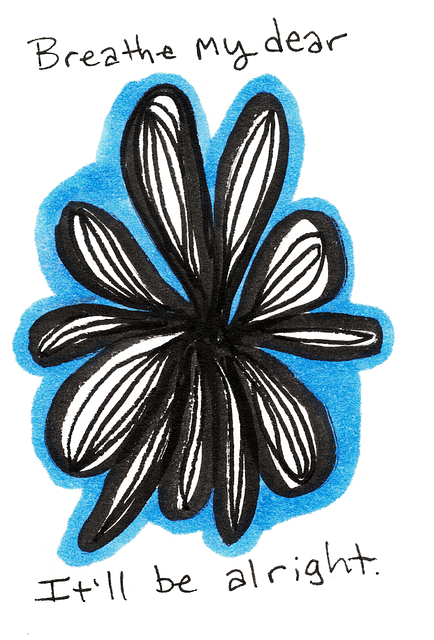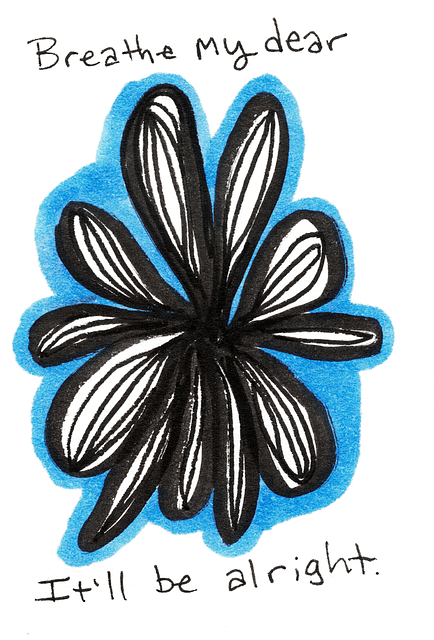Major life transitions significantly impact adults' mental health, requiring effective therapy to process emotions and develop healthier coping mechanisms. Resilience, Flexibility, and Mastery (RFM) therapy offers a holistic approach, teaching emotional regulation, adaptability, and empowerment for renewed confidence. Resilience-building exercises, self-care routines, and integrating RFM framework enhance mental wellness during transitions, providing tools for improved mood management and increased resilience.
Many adults face significant life transitions that can trigger stress, anxiety, and emotional turmoil. Understanding these pivotal moments and their impact is crucial in providing effective therapy. This article explores how the RFM model (Resilience, Flexibility, Mastery) enhances traditional approaches by fostering adaptability during challenging life shifts. We delve into the value of resilience-building exercises as therapeutic tools, offering practical insights for integrating RFM techniques into adult life transition therapies.
- Understanding Major Life Transitions and Their Impact on Adults
- Introduction to RFM (Resilience, Flexibility, and Mastery)
- The Role of Resilience Building Exercises in Therapy
- Practical Tips for Incorporating RFM into Adult Life Transition Therapies
Understanding Major Life Transitions and Their Impact on Adults

Major life transitions, such as losing a job, moving to a new city, or experiencing the death of a loved one, can significantly impact adults’ mental and emotional well-being. These events often lead to a range of feelings, from initial shock and denial to profound sadness, anger, and anxiety. Therapy for adults facing major life transitions plays a pivotal role in helping them navigate these complex emotions and build resilience.
Effective therapy provides a safe space for individuals to explore and process their experiences, fostering better communication strategies and emotional regulation skills. Through therapeutic techniques, adults can learn to manage the stress and anxiety relief that often accompanies significant changes in their lives. By understanding and coping with these transitions healthily, individuals can cultivate adaptability and strength, which are essential for emerging on the other side with a renewed sense of purpose and resilience.
Introduction to RFM (Resilience, Flexibility, and Mastery)

Resilience is a powerful tool for navigating life’s challenges, especially during significant adult life transitions. RFM, an acronym for Resilience, Flexibility, and Mastery, offers a holistic framework to help individuals build emotional strength and adapt to change. This approach recognizes that life often presents unexpected twists and turns, requiring us to adjust our sails and keep moving forward. By focusing on these three pillars, adults can enhance their ability to withstand stressful situations and thrive in the face of adversity.
In today’s fast-paced world, where major life transitions are frequent, RFM provides a much-needed therapy for adults. It encourages emotional regulation by teaching individuals to recognize and manage their feelings effectively. Through various exercises designed to foster flexibility, one learns to adapt to changing circumstances with grace. Moreover, the concept of mastery empowers people to take control of their lives, cultivate positive thinking, and emerge from transitions with renewed confidence and a sense of purpose.
The Role of Resilience Building Exercises in Therapy

Resilience building exercises play a pivotal role in therapy for adults navigating major life transitions. These exercises are designed to empower individuals with coping strategies and mental wellness coaching programs that enhance their ability to bounce back from challenges. Through activities focusing on self-care routine development, clients can build confidence boosting skills, enabling them to face uncertainties head-on.
In the context of therapy, these exercises facilitate a profound transformation in one’s perspective, fostering a growth mindset essential for managing life’s inevitable ups and downs. By integrating resilience into their lives, adults can improve their overall mental health and well-being, ensuring they remain steadfast during transitions and beyond.
Practical Tips for Incorporating RFM into Adult Life Transition Therapies

Incorporating RFM (Resource, Strengths, and Mastery) into therapy for adults navigating major life transitions can significantly enhance their resilience-building journey. Therapists can encourage clients to identify and leverage resources, such as supportive networks or past achievements, to foster a sense of capability and confidence. By focusing on strengths, therapists help individuals recognize their inherent abilities, which can boost self-esteem improvement and mental wellness during challenging transitions.
Practical tips for implementation include integrating RFM exercises into each therapy session, encouraging clients to maintain a journal documenting resources, strengths, and mastery experiences, and regularly reviewing these records to reinforce positive thoughts and emotions. Additionally, therapists can guide clients in setting achievable goals, celebrating small victories, and learning from setbacks, all of which contribute to effective mood management and enhanced overall resilience.
Resilience, flexibility, and mastery (RFM) exercises offer a powerful toolkit for adults navigating major life transitions. By integrating these principles into therapy, professionals can empower individuals to adapt and thrive during challenging shifts. The practical tips outlined in this article provide a starting point for therapists to incorporate RFM into their practices, fostering greater resilience and well-being among clients facing life’s inevitable transformations. When combined with effective therapy for adults experiencing major life transitions, RFM exercises have the potential to revolutionize support systems and enhance overall coping abilities.














